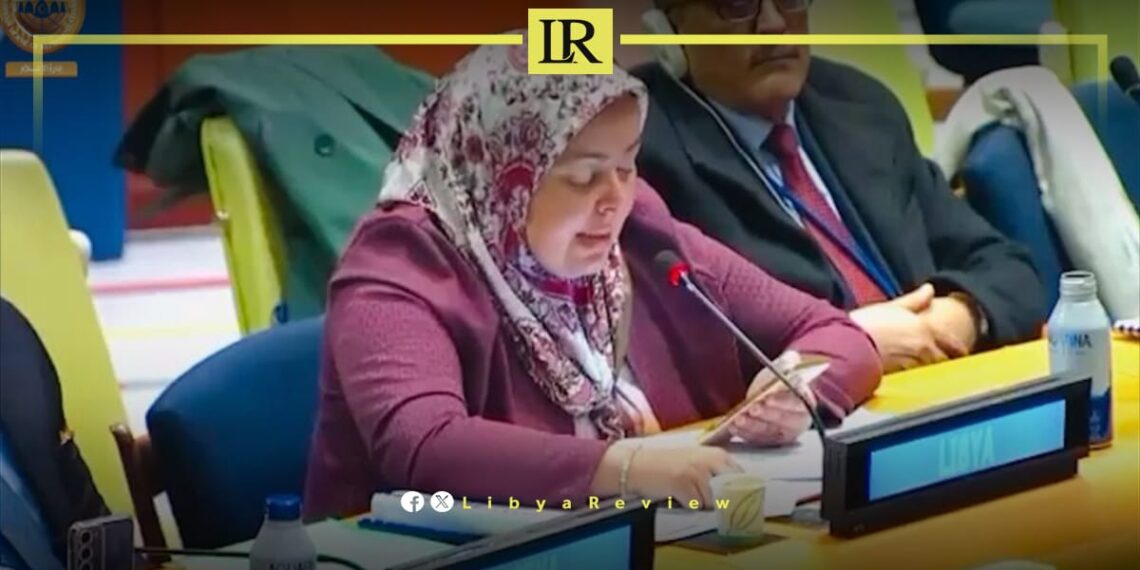Rabia Abu Ras, Chair of the Sustainable Development Committee in Libya’s House of Representatives, has urged international parliamentarians to push for the removal of restrictive trade barriers and high tariffs on exports from developing nations.
Speaking at the Inter-Parliamentary Union (IPU) hearing held at the United Nations headquarters in New York on 13–14 February, Abu Ras stressed the need to reform the global trade system. She highlighted that structural imbalances favour major economies, depriving developing countries of sustainable growth opportunities.
She emphasised that trade should serve as a tool for equitable economic development rather than reinforcing global economic disparities. Abu Ras called for reforms in the World Trade Organisation (WTO) to make it more inclusive and fair, ensuring that it does not exclusively benefit major economies. She also advocated for increased representation of developing nations in shaping international trade policies.
Furthermore, Abu Ras urged for the integration of social justice and environmental sustainability standards in trade agreements. She highlighted the necessity of strengthening regional partnerships and economic blocs to enable developing countries to negotiate fairer trade terms and protect their domestic markets from unfair exploitation.
The Libyan MP also called for a greater role for parliaments in shaping international trade policies. She argued that legislative bodies should act as key stakeholders in ensuring fairness and equality in trade agreements while aligning national policies with sustainable development goals.
She stressed that parliaments can facilitate strategic partnerships by enacting investment-friendly legislation and fostering stronger ties with sovereign wealth funds. Additionally, she encouraged the alignment of national policies with the UN’s 2030 Sustainable Development Agenda to promote long-term, socially and environmentally responsible investments, including green bonds and environmental finance instruments.


